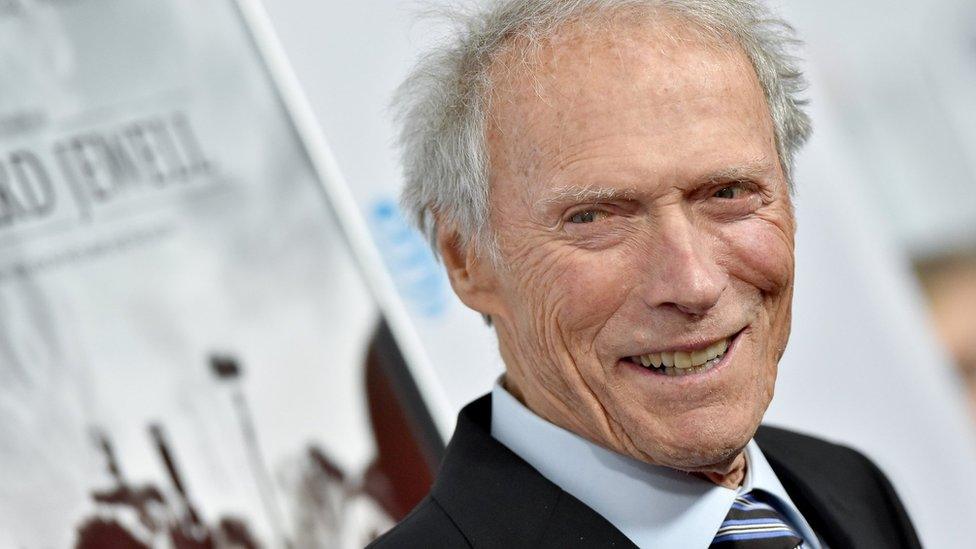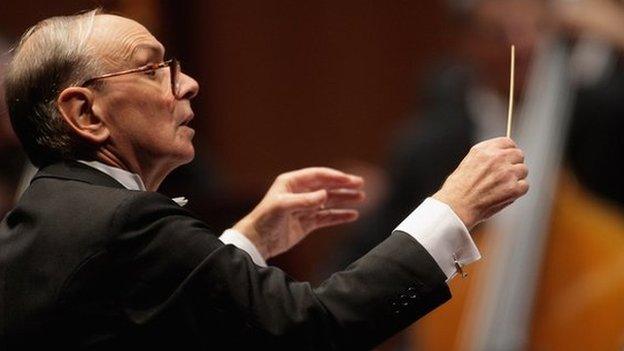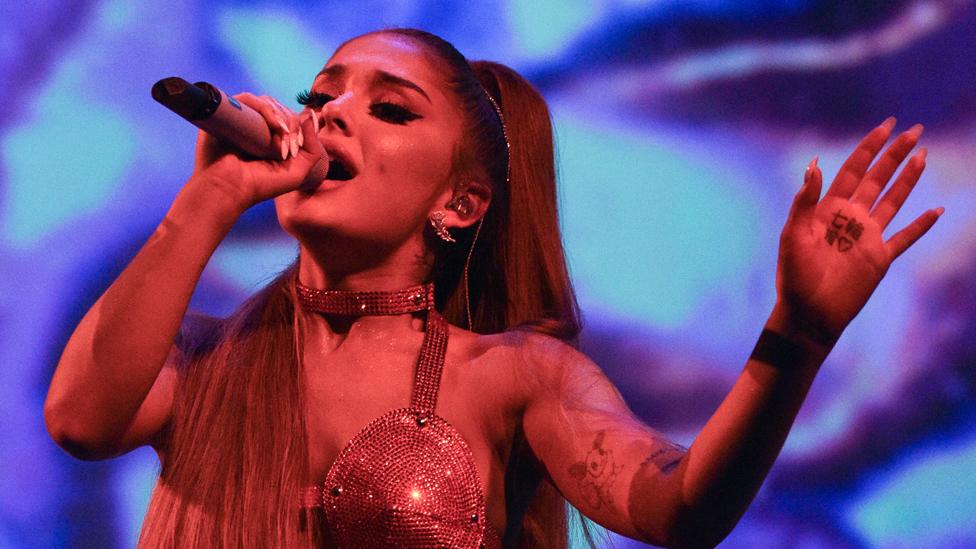Clint Eastwood sues over false cannabis endorsements
- Published

Hollywood actor Clint Eastwood is suing a host of cannabis companies that he says have falsely used his name to endorse their goods.
The 90-year-old accuses the firms of spreading fake articles and tagging their websites with his name to make it look like he had backed their products.
Nearly 20 firms are named in the suits, accused of trademark infringement and defamation among other violations.
One firm, Sera Labs, said it had stopped the fake ads "immediately".
All of the companies sell goods with CBD, an extract from the marijuana plant that does not have psychoactive properties. It is used in products such as creams, oils and food.
However lawyers for Mr Eastwood - who has starred in films such as Dirty Harry, as well as directing features including Mystic River - said he "does not have and never has had" any association with CBD.
'No association with CBD'
One of the fake articles was headlined "Big Pharma In Outrage Over Clint Eastwood's CBD" and quotes the actor saying he is stepping away from his acting career to promote a new line of CBD products, according to one of the two lawsuits, which were filed in a federal court in California.
But Mr Eastwood's lawyers say he never gave such an interview.
The other lawsuit concerns an "internet scam", in which the firms tagged their websites with Mr Eastwood's name, a move that made it look like he had backed the products, while also making it easier for people searching online to find their products.
"Like many of his most famous characters, Mr Eastwood is not afraid to confront wrongdoing and hold accountable those that try to illegally profit off his name," the court papers say.
'Stopped immediately'
The lawsuits say it is standard practice for Mr Eastwood to reject licensing deals and reserve his celebrity to advertise his films and other personal interests.
One of the CBD firms in the lawsuit, Sera Labs, said it had been unaware that its products were being falsely linked with the actor.
It said it had "worked for a limited time with a publisher and gave them specific advertisements they could use which follow our very strict guidelines".
It added that it "shut down the ads immediately after learning that they used Mr Eastwood's name and likeness".
- Published16 September 2019
- Published18 December 2014

- Published3 September 2019
